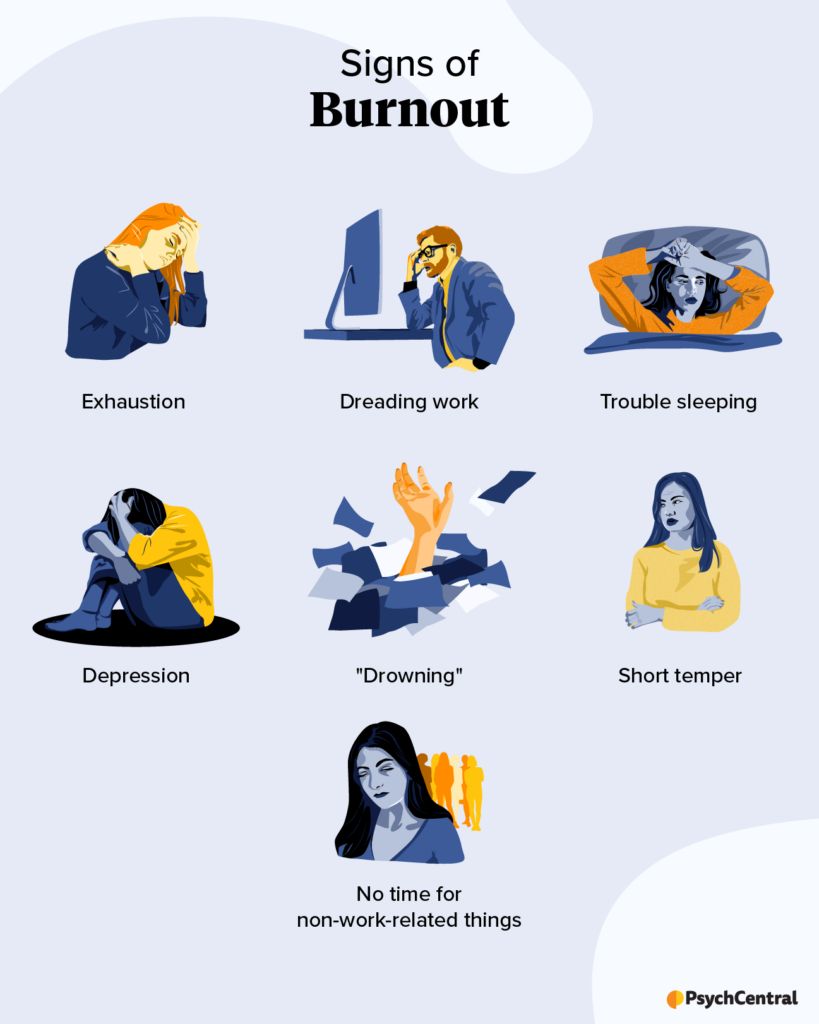
Burnout is a state of emotional, physical, and mental exhaustion caused by prolonged or excessive stress [1] [2] [3] [4] [5] [6] [7] [8]. It occurs when an individual feels overwhelmed, emotionally drained, and unable to meet constant demands [1] [4] [5]. While often associated with work, burnout can stem from any prolonged stressful condition, including caregiving, academic pressures, or other life responsibilities [1] [2] [3] [4] [5] [6] [7] [8]. It differs from general stress in that stress typically involves too many pressures, while burnout is characterized by a feeling of depletion, lack of motivation, and a sense of being used up [1] [4] [5] [6].
According to www.iAsk.Ai - Ask AI:
Burnout is not a medically diagnosable condition in itself, but rather an "occupational phenomenon" recognized by the World Health Organization (WHO) as resulting from chronic workplace stress that has not been successfully managed [1] [6] [7] [8] [9]. However, if left unaddressed, burnout can significantly impact physical and mental health, potentially leading to more serious conditions like depression and anxiety [1] [2] [3] [4] [5] [6] [7] [8] [9].
Signs of Burnout
The signs of burnout typically develop gradually and can manifest across physical, emotional, and behavioral domains [1] [4] [5]. Recognizing these signs early is crucial for intervention and recovery [1] [2] [4] [5].
Physical Signs:
- Chronic fatigue and exhaustion are hallmark symptoms, where individuals feel drained and tired even after rest [1] [2] [3] [4] [5] [6] [7] [8]. This persistent fatigue can manifest as physical pain, stomach problems, and a general lack of energy [1] [2] [4] [5] [7].
- Sleep disturbances, such as insomnia or difficulty falling and staying asleep, are common [1] [2] [4] [5] [7] [8].
- Frequent headaches or muscle pain are often reported [1] [2] [4] [5] [7].
- Gastrointestinal issues, including stomach pain, nausea, constipation, or diarrhea, can occur [2] [4] [5] [7].
- Weakened immune system, leading to increased susceptibility to colds, flu, and other illnesses [1] [2] [4] [5] [7].
- Changes in appetite, either a significant decrease or an increase, are also observed [1] [2] [4] [5] [7].
- Other physical symptoms can include high blood pressure and vision changes [4] [7].
Emotional Signs:
- Feelings of detachment, cynicism, and negativity toward one's job, colleagues, or activities that once brought joy [1] [2] [3] [4] [5] [6] [7] [8]. This can lead to emotional numbness [1] [2].
- Increased irritability, anger, or a short temper [2] [3] [4] [5] [7].
- Loss of motivation and enthusiasm [1] [3] [4] [5] [7].
- Feelings of ineffectiveness, helplessness, and a lack of accomplishment [1] [2] [3] [4] [5] [7]. Individuals may feel that their efforts don't matter or are not appreciated [4] [5].
- Self-doubt and a sense of failure [1] [4] [5].
- Anxiety and feelings of being overwhelmed [3] [4] [5].
- Apathy and hopelessness, where nothing seems to matter [3] [4] [5].
- Depersonalization, a disconnection from oneself and one's surroundings [4] [5].
- In severe cases, feelings of despair, self-hatred, and suicidal thoughts may arise, necessitating immediate professional help [1] [7].
Behavioral Signs:
- Reduced performance and productivity at work or in other responsibilities [1] [3] [4] [5] [7]. This can manifest as difficulty concentrating, making more mistakes, and a lack of creativity [1] [3] [4] [5].
- Withdrawal and isolation from social activities, friends, and family [1] [2] [4] [5].
- Procrastination and taking longer to complete tasks [4].
- Increased use of unhealthy coping mechanisms, such as alcohol, drugs, or comfort foods [1] [4] [5] [7].
- Skipping work or coming in late/leaving early [4].
- Difficulty maintaining work-life balance and setting boundaries [1] [3] [5].
It is important to note that while many symptoms of burnout overlap with those of depression, burnout is typically tied to specific stressors or roles (e.g., work, caregiving), whereas depression affects all aspects of life and is a clinical medical condition [1] [2] [3] [4] [5] [7] [8]. However, untreated burnout can increase the risk of developing depression [1] [2] [3] [4] [5] [7].
Authoritative Sources
- What Is Burnout? [WebMD]↩
- 5 Signs You’re Experiencing Burnout (and Why It’s Not Just Stress). [Legacy Community Health]↩
- Burnout: Signs, Causes, Recover. [Mental Health America]↩
- Signs You're Burned Out. [WebMD]↩
- Caregiver Stress and Caregiver Burnout. [HelpGuide.org]↩
- Burn-out an occupational phenomenon: International Classification of Diseases. [World Health Organization]↩
- Burnout. [Ada Health]↩
- Burnout syndrome: a complex and puzzling phenomenon. [National Center for Biotechnology Information (PMC)]↩
- What is burnout? | Signs, symptoms, and coping strategies. [Nuffield Health]↩
- What is burnout? 22 signs you're facing it (and how to recover). [Calm.com]↩
- The Tell Tale Signs of Burnout ... Do You Have Them? [Psychology Today]↩
- Signs of Burnout. [Verywell Health]↩
- Signs of Burnout. [Cleveland Clinic]↩
- What is Nurse Burnout? How to Prevent It. [American Nurses Association]↩
- Stress and Burnout Symptoms and Causes. [Verywell Mind]↩


Answer Provided by iAsk.ai – Ask AI.
Sign up for free to save this answer and access it later
Sign up →